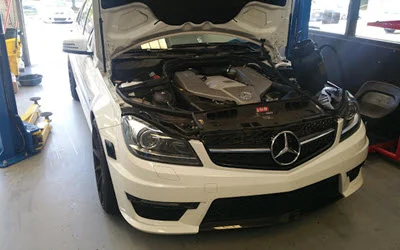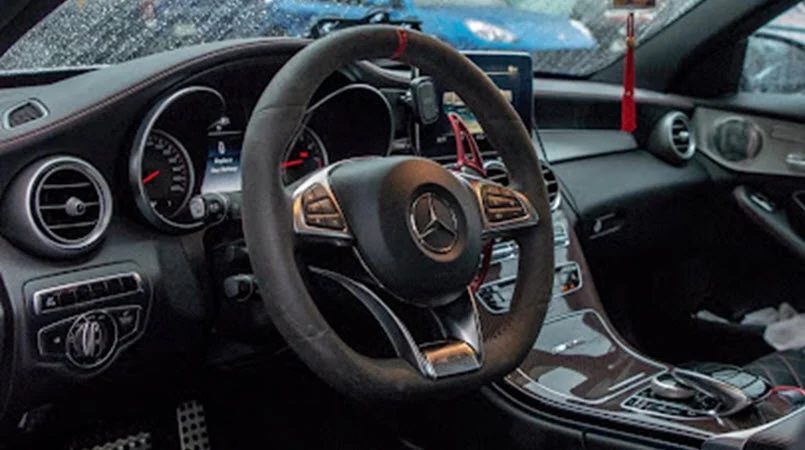Mercedes-Benz has long been known for its smooth handling, both in how it glides across the road and in its responsiveness to the slightest touch on the steering wheel. So, what might cause a Mercedes steering wheel to start feeling loose and more importantly, what can you do about it?
Today we’ll talk a little about Mercedes-Benz steering so that if this is occurring in your vehicle, you’ll have a pretty good idea of the cause and the next steps involved in putting this problem behind you.
What Can Cause My Steering Wheel to Feel Loose?
Mercedes steering might feel like a dream, but it’s actually reliant on quite a few components that come together to make the magic happen. That doesn’t mean that you can’t isolate where the problem is, however, so here are the most common issues that may produce a loose-feeling steering wheel:
- Steering rack problems – Sometimes the rack and pinion mechanism for your steering can become degraded, either from prolonged fluid contact or normal wear and tear. When this happens, drifting may occur when you are steering the vehicle and this definitely creates a safety issue that you won’t want to wait to address.
- Damaged or degraded steering column – Likewise the steering column may be the cause of ‘loose steering’. If it’s recently been replaced, this could be a poor-quality installation, although most often these types of issues have to do with joints wearing down over time.
- Steering gear issues – Your steering gear is there to transfer the motion from your steering wheel to the wheels of your vehicle and if you have power steering, it will be working directly with the steering gear to help upgrade your handling. When there are problems, control is affected and that can cause the steering wheel to feel loose and less responsive.
- Wear and tear on the ball joints – Ball joints help to connect the control arms and your steering knuckle, and like any other parts these can become worn and require eventual replacement.
- Loose tie rod ends – The tie rods ends are what connect your steering system to your wheels. With time and pressure, they start wearing down and when they do, you’ll feel it in the wheel as less-responsive control becomes apparent in your Mercedes.
How do I Find Out What the Problem is?
Narrowing down the issue is not something you want to try to do if you’re a novice. That said, if you have a mechanical inclination, there are certainly some things that you can check. For instance, if the car is on a jack and suspended safely, you can try moving the wheels to see if you get a lot of movement.
If you do, then the ball joints might be going out on the wheel that’s moving a little too easily. Likewise, if you know where to find the tie rods you can give them a good look to see if you can spot wear and tear, and check for loose connections or leaks in your steering gear.
If your Mercedes Benz has power steering, then an easy thing you can check is the fluid levels, but as you can see most of the items that you’d need to look at are going to take a little more mechanical skill than most folks are going to have.
The bright side, however, is that regular routine maintenance can usually catch these issues before they can become a problem, provided that your mechanic knows their way around a Mercedes.
A Little Routine Maintenance Goes a Long Way
Regular preventative maintenance protects your  investment by making sure that you are always getting the manufacturer recommended checks at exactly the right time. If you happen to live in Georgia, then we’ve got good news – Solo Motorsports is ready to help!
investment by making sure that you are always getting the manufacturer recommended checks at exactly the right time. If you happen to live in Georgia, then we’ve got good news – Solo Motorsports is ready to help!
Since 2003, Solo Motorsports have been providing full-service repair and preventative maintenance for the following European brands:
That means that your Mercedes will be getting the benefit of ASE-certified mechanics from a shop that’s been taking care of these vehicles for just over 2 decades. That’s a whole lot of expertise to have at your beck and call and what’s more, since we have the experience, we’ll be able to warn you of any model-specific issues that you might want to know about before they can become a problem.
 Call Alpharetta
Call Alpharetta